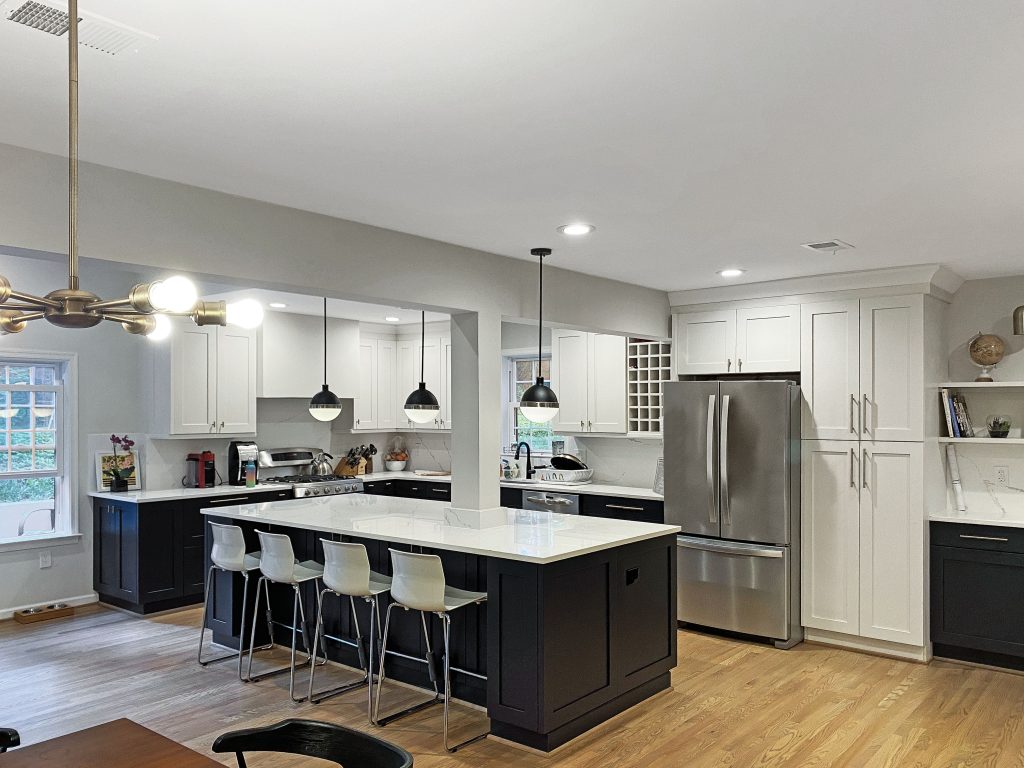Kitchen cabinets play a significant role in creating a cleaner and more hygienic cooking environment. They are not only essential for storing cookware, utensils, and ingredients but also help to keep the kitchen organized, free from clutter, and easier to clean. By offering a designated space to store items, kitchen cabinets prevent the accumulation of dust, dirt, and food scraps on countertops, reducing the risk of contamination and ensuring a safer cooking area. One of the primary ways kitchen cabinets contribute to cleanliness is by providing a hidden storage solution for various kitchen items. Without proper cabinetry, everyday kitchen essentials like spices, oils, dishware, and cookware could be left out on surfaces, which can quickly become breeding grounds for bacteria, mold, and germs. With cabinets, these items are safely stored away from dust, moisture, and potential contamination. Furthermore, keeping items tucked away ensures that the kitchen surfaces remain clear, making it easier to wipe down countertops and floors without having to move around numerous items.

The design and material of Waukesha Kitchen cabinets can also play a crucial role in hygiene. High-quality, non-porous materials such as stainless steel, laminate, or certain types of wood are easier to clean and less likely to harbor bacteria. These materials can be wiped down with ease, preventing food residues from accumulating and making it less likely for harmful germs to linger. Additionally, many modern kitchen cabinets are designed with features that prevent spills and crumbs from falling into hard-to-reach spaces, which reduces the effort required for cleaning. Cabinets that are well-organized further enhance a hygienic kitchen. Drawer organizers, pull-out shelves, and specialized compartments for items like knives or cutting boards help to keep things in place, making it easier to locate what is needed while cooking. This not only improves efficiency but also limits the chances of cross-contamination. For example, by keeping raw meats separate from vegetables or cooked foods, cabinets reduce the risk of harmful bacteria spreading from one surface or item to another. In addition to physical cleanliness, kitchen cabinets also help maintain an aesthetically pleasing environment, which indirectly contributes to a healthier space.
A well-kept, organized kitchen encourages regular cleaning and maintenance, which fosters good habits among household members. It is easier to take out the trash or wipe down surfaces when everything has its designated space. A clutter-free kitchen also reduces stress and promotes a sense of order and calm, which is essential in a space where food is prepared. Ultimately, the contribution of kitchen cabinets to a cleaner, more hygienic cooking area goes beyond just their role in storage. They are integral to maintaining a safe, efficient, and sanitary environment where food preparation can take place without the added risks of contamination. By keeping essential items organized, minimizing mess, and ensuring surfaces remain easy to clean, kitchen cabinets are an indispensable feature in any home that values both cleanliness and health. By focusing on aesthetics, functionality, and high-quality materials, you can create a space that not only improves your daily living experience but also attracts prospective buyers and boosts the appeal of your home on the market.
